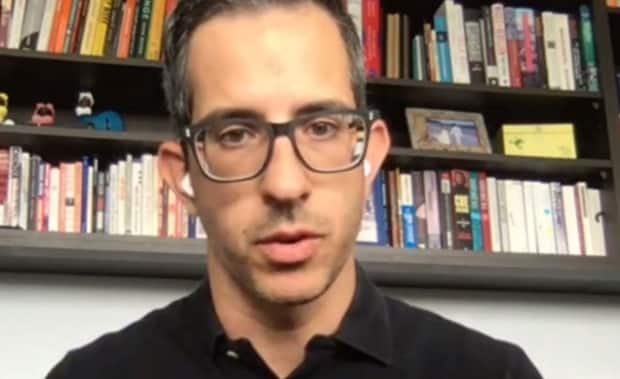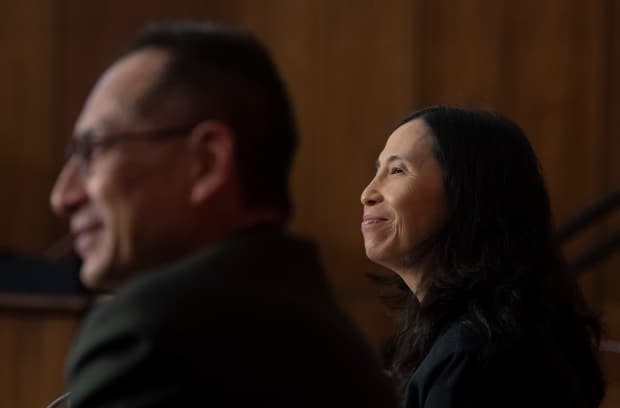Removal of Alberta's remaining COVID-19 protocols sparks outrage among physicians

Many Alberta doctors are reacting with surprise and disappointment to the province's plan to relax its COVID-19 surveillance and management system despite an increase in case numbers, the positivity rate and R-value, and vaccination rates that are lagging behind other provinces.
As of Thursday, quarantine for close contacts became no longer mandatory but just recommended. Contact tracers will no longer notify close contacts, but they will continue to investigate cases in high-risk settings such as continuing care facilities. Asymptomatic testing will no longer be recommended.
On Aug. 16, a further scaling down of the rules is planned:
You will no longer be required to isolate if you test positive for COVID-19, but isolation will still be strongly recommended.
Isolation hotels and quarantine supports will no longer be available.
Testing will be available for symptomatic people only when needed to help direct patient care decisions.
After Aug. 31, testing for COVID-19 will be available only for patients whose symptoms are severe enough to need care in hospitals or physicians' clinics.
Masking won't be required in schools.
Masks will no longer be required on public transit and in most continuing care facilities.
Dr. Neeja Bakshi, who has worked on the COVID unit at Edmonton's Royal Alexandra Hospital through the pandemic, says she's worried the changes will have terrible results.
"The medical community is being completely gaslighted right now," she said. "The idea that in two weeks time we can just be done with this when we know we're not is so irresponsible."
Bakshi said she believes abandoning testing, isolating and contact tracing will lead to preventable deaths.
"Take all that away — if the first time we know you have COVID is when we're intubating you, that's a problem," she said.

Demonstrations in Calgary, Edmonton
Members of the medical community unhappy with the province's plan staged demonstrations at the Alberta Legislature in Edmonton and outside the provincial offices in Calgary's McDougall Centre at noon on Friday.
Speaking at the rally in Calgary, Dr. Joe Vipond, an ER physician and co-founder of the Masks4Canada advocacy group, called on Dr. Deena Hinshaw, Alberta's chief medical officer of health, to resign.
"Like everybody, I wanted to believe that Dr. Hinshaw had our best interests at heart," he said.
"But if you sign your name on a document that says I'm going to expose every Albertan, including all of our children, to unknown risks, I'm afraid she needs to resign. I don't know what else."
Vipond says the province is facing a moment of history and officials will have to answer for their decisions.
"The scary thing is, we haven't had a single public health officer resign in response to this. We haven't had a single MLA resign as a cause of this," he said, adding that he's come to believe there are "layers and layers and layers of badness" driving policy decisions.
"So all I can think of is we come out, we say that this is not right, you're not going to do this in my province."
Dr. Gabriel Fabreau, who also treats COVID-19 patients and teaches general internal medicine at the University of Calgary, said the more infectious delta variant is still a threat.
"Dismantling our testing or surveillance infrastructure and depending on hospitalizations as only indicators — that leaves us blind and defenceless," he said.
Fabreau said he expects the delta variant will rip through vulnerable communities.
"I'm worried," he said.
Fabreau said he's concerned that allowing the virus to spread unchecked could open the door to new variants.
"If we are the province that lets her rip, we are increasing the risk of the 'Alberta' variant. Do we really want that?"
Health minister said decision not political
Alberta Health Minister Tyler Shandro said he stands by the decision to scale back public health measures, which he noted was not politically driven but was put forward by Hinshaw.
"We have many different opinions in the medical community, and that's to be expected and that's encouraged," he said.
On Thursday, Dr. Daniel Gregson, an infectious disease specialist with the University of Calgary, said the government's decision to end mandated isolation is irresponsible.
"The message we're sending is that if you have an infection with COVID, or think you might have an infection with COVID, you can do whatever you want," he said. "I would not agree with that."
Gregson said a fourth wave is inevitable, primarily among young and healthy individuals.
"We are going to see a bump in our hospitalizations. The question is, how much?"
Dr. Howard Njoo, Canada's deputy public health officer, said that as rules change from one jurisdiction to another, provinces might need to consider taking steps to protect their own people.
"I think everyone is alive to the fact that there could be ... knock-on effects to the other provinces and territories — with travel within Canada, you know, with residents of one province going to another province. Obviously, in this case, we're looking at Alberta," he said.

"The other provinces and territories will need to do and recognize what in their context might be most appropriate for their residents and to protect ... their public health and health-care system within their own provinces."
Dr. Theresa Tam, Canada's chief public health officer, said it's up to provinces to decide on their own health measures, but she still strongly encouraged people in Alberta who contract COVID-19 to self-isolate, even if it's not mandated by the province.
"I would ask that any individual who is diagnosed with COVID-19, or you think you may have it, please isolate, please get your test and inform your close contacts," she said.
Dr. Sarah Fortune, chair of the department of immunology and infectious diseases at Harvard University's T.H. Chan School of Public Health in Boston told CBC's Radio Active that she believes Alberta's plan is a good one.
"I think Alberta is taking reasonable steps in the face of having done a good job of bringing the viral numbers down and in the face of good vaccine coverage," she said.
"I don't think the people of Alberta, where you've achieved upwards of 70 per cent vaccine coverage, need to think that they're going to become the next Louisiana, where vaccine coverage is much lower."
Fortune cautioned that the global community is not out of the woods yet, however, and said the playing field can always shift as new, dangerous variants emerge.
But she said that since the long-running pandemic has exacted such a toll on society, it's important to take steps like those being carried out now in Alberta.
"In fact, it's very important for us as people to take advantage of your successes, the successes of your public health system, and live a little," Fortune said.

With files from Radio Active and the CBC's Jennifer Lee.

